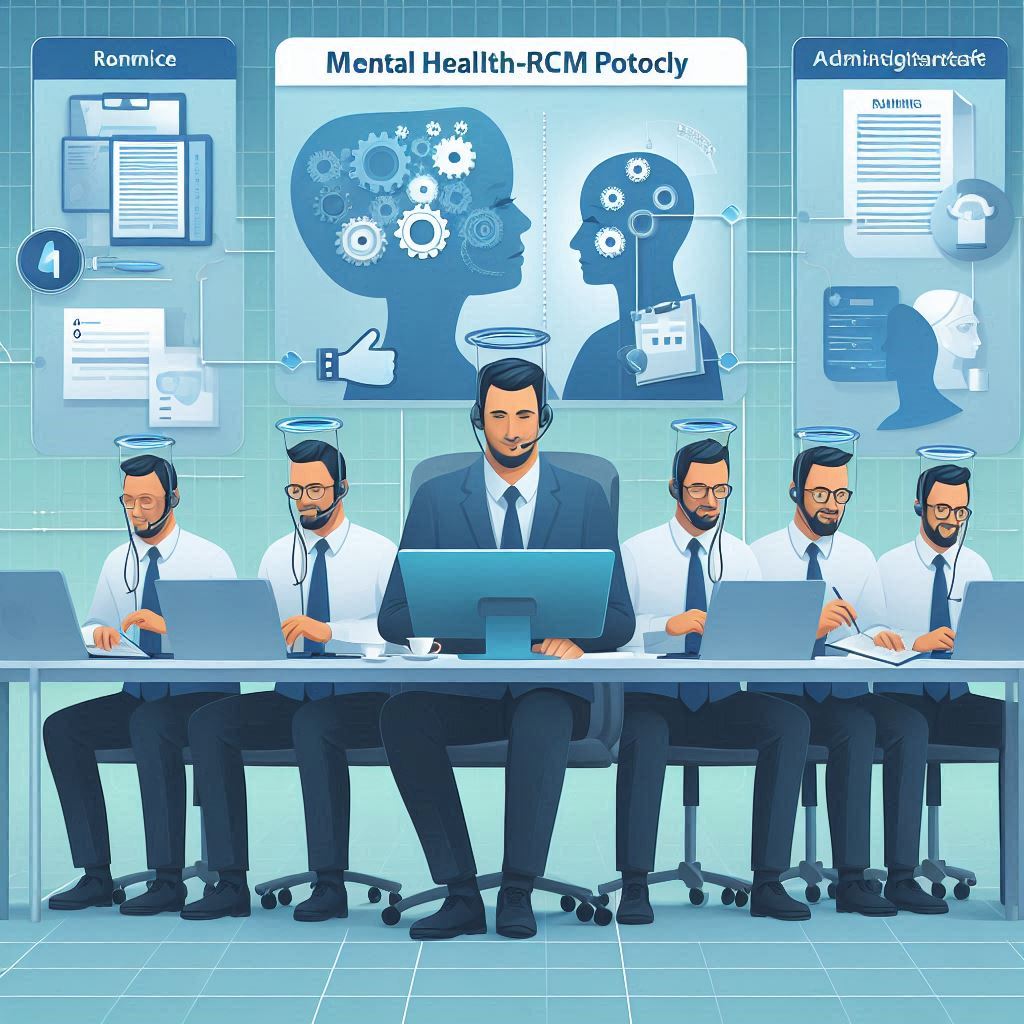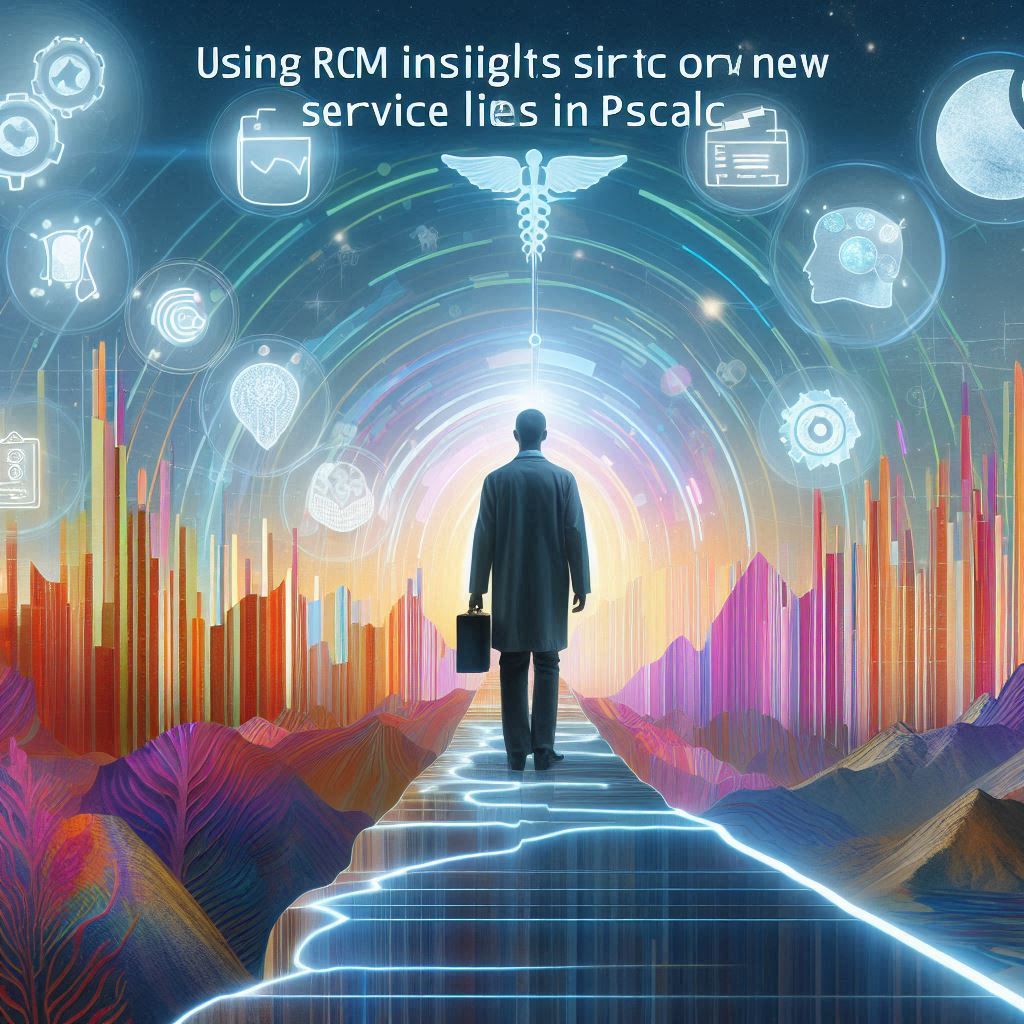-

Remote RCM Teams: Managing Productivity in Virtual Mental Health Billing
In the evolving landscape of healthcare administration, remote Revenue Cycle Management (RCM) teams are no longer an exception but a growing norm—particularly in the field of mental health. The COVID-19 pandemic accelerated the transition to virtual operations, and many behavioral health practices found unexpected efficiency in remote work structures. As practices expanded telehealth, outsourced billing,…
-

Building an RCM Leadership Team in Your Behavioral Health Practice
In today’s complex and fast-evolving healthcare environment, behavioral health practices face a unique set of revenue cycle management (RCM) challenges. These include high claim denial rates, fragmented payer rules, mental health parity compliance, Medicaid complexities, and stringent documentation requirements. In this context, a high-functioning RCM leadership team is not just an operational luxury—it is a…
-

Training Administrative Staff in Mental Health-Specific RCM Protocols
In the rapidly evolving landscape of mental healthcare, the importance of an efficient Revenue Cycle Management (RCM) system cannot be overstated. RCM serves as the financial backbone of any healthcare practice, encompassing all administrative and clinical functions that contribute to the capture, management, and collection of patient service revenue. While many providers focus on clinical…
-

Using RCM Insights to Identify New Service Lines in PsychCare
Revenue Cycle Management (RCM) is the financial backbone of healthcare organizations, ensuring timely and accurate reimbursement for services rendered. In an increasingly complex and dynamic healthcare landscape, the margin for error is thin. Disruptions in reimbursement—caused by policy changes, payer denials, staffing shortages, technology failures, or shifting patient demographics—can cripple an organization’s cash flow and…
-

RCM Risk Management: Forecasting Disruptions in Reimbursement
Revenue Cycle Management (RCM) is the financial backbone of healthcare organizations, ensuring timely and accurate reimbursement for services rendered. In an increasingly complex and dynamic healthcare landscape, the margin for error is thin. Disruptions in reimbursement—caused by policy changes, payer denials, staffing shortages, technology failures, or shifting patient demographics—can cripple an organization’s cash flow and…
-

Aligning Strategic Planning with RCM Objectives in Group Psych Practices
In today’s evolving behavioral healthcare environment, group psychology practices must continuously adapt to stay financially viable and clinically effective. Strategic planning, often associated with long-term visions, growth roadmaps, and mission-driven outcomes, has traditionally existed in a separate silo from the gritty, daily realities of revenue cycle management (RCM). Yet, ignoring the financial lifeblood of a…
-

Creating an RCM Task Force in Growing Behavioral Health Networks
When people think of fitness, images of toned muscles, weight loss, and improved athletic performance often come to mind. Yet for many, the journey of physical transformation is just the beginning. Beneath the sweat, the reps, and the personal records lies something far more profound—spiritual awakening, self-discovery, and deep emotional healing. Fitness, for many, becomes…
-

Transformation Beyond the Body: Fitness Journeys That Changed Lives Spiritually
When people think of fitness, images of toned muscles, weight loss, and improved athletic performance often come to mind. Yet for many, the journey of physical transformation is just the beginning. Beneath the sweat, the reps, and the personal records lies something far more profound—spiritual awakening, self-discovery, and deep emotional healing. Fitness, for many, becomes…
-
How Fasting Can Improve the Healing Process After Tooth Extractions
Tooth extractions are among the most common oral surgeries performed globally. Whether prompted by decay, periodontal disease, trauma, impaction, or orthodontic necessity, tooth removal initiates a complex biological cascade aimed at restoring tissue integrity and function. While this process is generally self-limiting and effective, certain systemic and local factors can hinder optimal healing. Emerging evidence…
-
The Role of Fasting in Minimizing the Risk of Teeth Grinding
Teeth grinding, medically known as bruxism, is a common yet often misunderstood condition affecting both children and adults across the globe. Characterized by the involuntary grinding or clenching of teeth—most often during sleep—bruxism can lead to a host of dental, muscular, and psychological complications. Among the multifaceted causes of this condition, stress, anxiety, sleep disorders,…

Monday – Saturday 9AM – 5PM
Sunday – CLOSED





